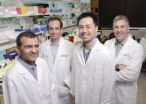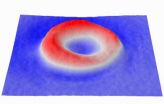(Press-News.org) PITTSBURGH—Close and caring relationships are undeniably linked to health and well-being for all ages. Previous research has shown that individuals with supportive and rewarding relationships have better physical and mental health and lower mortality rates. However, exactly how meaningful relationships affect health has remained less clear.
In a new paper, Carnegie Mellon University's Brooke Feeney and University of California, Santa Barbara's Nancy L. Collins detail specific interpersonal processes that explain how close relationships help individuals thrive. Published in Personality and Social Psychology Review, Feeney and Collins emphasize two support functions that relationships provide; point out when relationships can do more harm than good; and highlight areas where further research is necessary.
"Relationships enable us to not only cope with stress or adversity, but also to learn, grow, explore, achieve goals, cultivate new talents and find purpose and meaning in life," said Feeney, associate professor of psychology in the Dietrich College of Humanities and Social Sciences.
According to the researchers, thriving involves five components of well-being: happiness and life satisfaction; having purpose and meaning in life and progressing toward meaningful life goals; psychological well-being (positive self-regard, absence of mental health symptoms/disorders); social well-being (deep and meaningful human connections, faith in others and humanity, positive interpersonal expectancies); and physical well-being (healthy weight and activity levels, health status above expected baselines).
Whether the relationship is with friends, parents, siblings, a spouse or mentors, people will be most likely to thrive with well-functioning close relationships that serve two important functions: enabling them to thrive through adversity and enabling them to thrive in the absence of adversity.
Supportive relationships help people thrive through adversity not only by buffering individuals from negative effects of stress, but also by enabling them to flourish either because of or in spite of their circumstances.
"Relationships serve an important function of not simply helping people return to baseline, but helping them to thrive by exceeding prior baseline levels of functioning," Feeney said. "We refer to this as source of strength (SOS) support, and emphasize that the promotion of thriving through adversity is the core purpose of this support function."
Supportive relationships help people thrive in the absence of adversity by enabling them to embrace and pursue opportunities that enhance positive well-being, broaden and build resources and foster a sense of purpose and meaning in life. This type of support is referred to as relational catalyst (RC) support because support providers can serve as active catalysts for thriving in this context. This form of support emphasizes that the promotion of thriving through life opportunities is its core purpose.
The researchers argue that there are certain characteristics of support-providers that enhance their capacity to provide meaningful support.
"It is not just whether someone provides support, but it is how he or she does it that determines the outcome of that support. Any behaviors in the service of providing SOS and RC support must be enacted both responsively and sensitively to promote thriving. Being responsive involves providing the type and amount of support that is dictated by the situation and by the partner's needs, and being sensitive involves responding to needs in such a way that the support-recipient feels understood, validated, and cared for," explained Feeney.
Support-providers may inadvertently do more harm than good if they make the person feel weak, needy, or inadequate; induce guilt or indebtedness; make the recipient feel like a burden; minimize or discount the recipient's problem, goal, or accomplishment; blame the recipient for his or her misfortunes or setbacks; or restrict autonomy or self-determination. Support-providers might also be neglectful or disengaged, over-involved, controlling, or otherwise out of sync with the recipient's needs.
Support-recipients also play an important role in this process by facilitating or hindering the receipt of responsive support. Support-recipients can cultivate effective support by reaching out to others (vs. withdrawing), expressing needs in a clear and direct manner, being receptive to others' support efforts, regulating demands on others (not taxing their social network), expressing gratitude, engaging in healthy dependence and independence, building a dense relationship network, and providing reciprocal support.
The researchers emphasize that accepting support when needed, and being willing and able to provide support in return, should cultivate the types of mutually caring relationships that enable people to thrive.
Much of the existing research focuses on how relationships can help in times of stress, and most of this work has focused on self-reports of perceived social support. Feeney and Collins note it will be important for future research to:
Do more assessing of actual support behaviors that are enacted and of the degree to which those behaviors are responsive to the needs of the recipient;
Recognize that social support in adverse life circumstances can do much more than buffer against negative effects of the stressor
do more investigating of social support in non-adverse life circumstances
Work toward understanding mediating pathways and mechanisms of action (with a focus on thriving as the ultimate outcome)
Focus on close relationships as being central to facilitating or hindering thriving
Feeney and Collins hope that this framework will provide a foundation for the development of relationship-based interventions aimed at promoting public health. Interventions may focus on building close supportive relationships (e.g., within families or through mentors), and training support-providers to deliver the type of responsive support that fosters growth and thriving.
INFORMATION:
For more information, visit http://www.psy.cmu.edu/people/feeney.html.
Social support: How to thrive through close relationships
2014-09-05
ELSE PRESS RELEASES FROM THIS DATE:
Dietary recommendations may be tied to increased greenhouse gas emissions
2014-09-05
ANN ARBOR—If Americans altered their menus to conform to federal dietary recommendations, emissions of heat-trapping greenhouse gases tied to agricultural production could increase significantly, according to a new study by University of Michigan researchers.
Martin Heller and Gregory Keoleian of U-M's Center for Sustainable Systems looked at the greenhouse gas emissions associated with the production of about 100 foods, as well as the potential effects of shifting Americans to a diet recommended by the U.S. Department of Agriculture.
They found that if Americans adopted ...
Disease in a dish approach could aid Huntington's disease discovery
2014-09-05
Creating induced pluripotent stem cells or iPS cells allows researchers to establish "disease in a dish" models of conditions ranging from Alzheimer's disease to diabetes. Scientists at Yerkes National Primate Research Center have now applied the technology to a model of Huntington's disease (HD) in transgenic nonhuman primates, allowing them to conveniently assess the efficacy of potential therapies on neuronal cells in the laboratory.
The results were published in Stem Cell Reports.
"A highlight of our model is that our progenitor cells and neurons developed cellular ...
Novel immunotherapy vaccine decreases recurrence in HER2 positive breast cancer patients
2014-09-05
A new breast cancer vaccine candidate, (GP2), provides further evidence of the potential of immunotherapy in preventing disease recurrence. This is especially the case for high-risk patients when it is combined with a powerful immunotherapy drug. These findings are being presented by The University of Texas MD Anderson Cancer Center at the 2014 American Society of Clinical Oncology's Breast Cancer Symposium in San Francisco.
One of only a few vaccines of its kind in development, GP2 has been shown to be safe and effective for breast cancer patients, reducing recurrence ...
UT Southwestern researchers find new gene mutations for Wilms Tumor
2014-09-05
DALLAS – Sept. 5, 2014 – Researchers at UT Southwestern Medical Center and the Gill Center for Cancer and Blood Disorders at Children's Medical Center, Dallas, have made significant progress in defining new genetic causes of Wilms tumor, a type of kidney cancer found only in children.
Wilms tumor is the most common childhood genitourinary tract cancer and the third most common solid tumor of childhood.
"While most children with Wilms tumor are thankfully cured, those with more aggressive tumors do poorly, and we are increasingly concerned about the long-term adverse ...
Study reveals breast surgery as a definitive and safe treatment for elderly patients
2014-09-05
Singapore, 5 September 2014 – A study conducted by National Cancer Centre Singapore (NCCS) has shown that age per se is not a contraindication to breast cancer surgery, and such surgeries may be safely performed for women aged 80 years and above. Led by Dr Ong Kong Wee, Senior Consultant in the Division of Surgical Oncology, the team consists of Dr Veronique Tan, Consultant, and Dr Lee Chee Meng, Resident Doctor. The study explores the safety of breast cancer surgery in women aged 80 years and above.
A retrospective analysis was performed on 109 elderly women who underwent ...
Banked blood grows stiffer with age, study finds
2014-09-05
CHAMPAIGN, Ill. — It may look like fresh blood and flow like fresh blood, but the longer blood is stored, the less it can carry oxygen into the tiny microcapillaries of the body, says a new study from University of Illinois researchers.
Using advanced optical techniques, the researchers measured the stiffness of the membrane surrounding red blood cells over time. They found that, even though the cells retain their shape and hemoglobin content, the membranes get stiffer, which steadily decreases the cells' functionality.
Led by electrical and computer engineering professor ...
Brain mechanism underlying the recognition of hand gestures develops even when blind
2014-09-05
Does a distinctive mechanism work in the brain of congenitally blind individuals when understanding and learning others' gestures? Or does the same mechanism as with sighted individuals work? Japanese researchers figured out that activated brain regions of congenitally blind individuals and activated brain regions of sighted individuals share common regions when recognizing human hand gestures. They indicated that a region of the neural network that recognizes others' hand gestures is formed in the same way even without visual information. The findings are discussed in ...
Synthetic messenger boosts immune system
2014-09-05
This news release is available in German. When a pathogen attacks a healthy cell in the body, T lymphocytes are tasked with identifying and destroying the infected cell. Scientists know that they undergo a "training program" for this task in the lymph nodes or the spleen. "Programming cells" play a key role here, presenting pathogen constituents to the T lymphocytes. This is how the T lymphocytes learn to recognize these components and become specialized "killer" cells. Research teams led by Prof. Percy Knolle from Klinikum rechts der Isar and the University of Bonn ...
Combination microRNA therapy shown to suppress non-small-cell lung cancer
2014-09-05
BOSTON – Micro RNAs (miRNA) have recently emerged as key therapeutic agents against cancers and are actively being evaluated in pre-clinical models of various cancers as well as in human clinical trials.
Now, new findings show that a combination therapy of two miRNAs, let-7 and miR-34, suppressed tumor growth in an animal model of non-small-cell lung cancer, offering a promising therapeutic avenue for this extremely aggressive malignancy.
Currently reported online in the journal Oncogene, the study provides two important examples of basic science discoveries making ...
Stigma as a barrier to mental health care
2014-09-05
Over 60 million Americans are thought to experience mental illness in a given year, and the impacts of mental illness are undoubtedly felt by millions more in the form of family members, friends, and coworkers. Despite the availability of effective evidence-based treatment, about 40% of individuals with serious mental illness do not receive care and many who begin an intervention fail to complete it. A new report, published in Psychological Science in the Public Interest, a journal of the Association for Psychological Science, investigates stigma as a significant barrier ...


